In the early 1960s, Rock ‘n’ Roll was in a state of flux. The popularity of bands from the 1950s had been a fad, and Elvis had been drafted. Rhythm and Blues, which had influenced the Beatles and rock music, was still an influence, and had taken over the pop charts as Motown and girl groups gained in popularity. Surf rock was also gaining in popularity, as were the experimental sounds coming from numerous garage bands. (Britain’s skiffle revival of the 1950s was similar to US garage bands. The music favored inexpensive instruments and basic levels of talent. The Quarrymen were one such group.)
By 1964, there had been a decade of rock music prominent in mainstream media, although almost every successful musician was Caucasian, to avoid “race music” prejudice from radio stations. R&B continued to be popular, if segregated, distributed in the same channels by record stores and companies. It was R&B which influenced the Beatles sound, and many of the later bands of the “British Invasion”. The ease of discovery inspired many, whether it was Radio Luxembourg with a 1300 kW transmitter aimed at Britain, or Wolfman Jack on Mexico’s XERF broadcasting at a massive 2500 kW (five times the U.S. limit), heard across North America (and in Europe and Russia at night)! Electric guitars, the backbone of rock music, were commonplace. (Les Paul and wife Mary Ford had their own television show in 1954, featuring his electric guitar playing.) Reel-to-reel tape recording was also established, if still a bit esoteric.
Take a popular band from Britain, still relatively unknown in the U. S. Add a popular Sunday variety show watched by millions. Spice it up with massive publicity, brilliant marketing, and a nation recovering from a presidential assassination. You get a shared public experience via television which would not be surpassed until July 1969. Unlike Elvis, you had four clever lads from Liverpool who were charming, innocuous (except for their haircuts), stylish, and talented. By 1966, they had quit touring and spent their time in the studio, experimenting with technology and music.
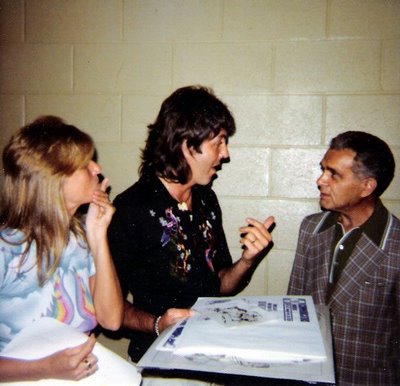
Perhaps the rise of Marvel Comics is a parallel, mixing superhero comics with more realistic storytelling. Is Lee/Kirby similar to Lennon/McCartney? Both innovated, both are influential. Rock and R&B evolved and changed with the times, even spinning off various subgenres like punk, hip hop, heavy metal. Did superheroes?
I’ll leave you with this reading list of graphic novels and comics.
- Marvel Super Super Special #4
- Rock toons : a cartoon history of the first 30 years of rock ‘n’ roll
- The Beatles in comic strips
- Baby’s in black : Astrid Kirchherr, Stuart Sutcliffe, and the Beatles
- The fifth Beatle : the Brian Epstein story


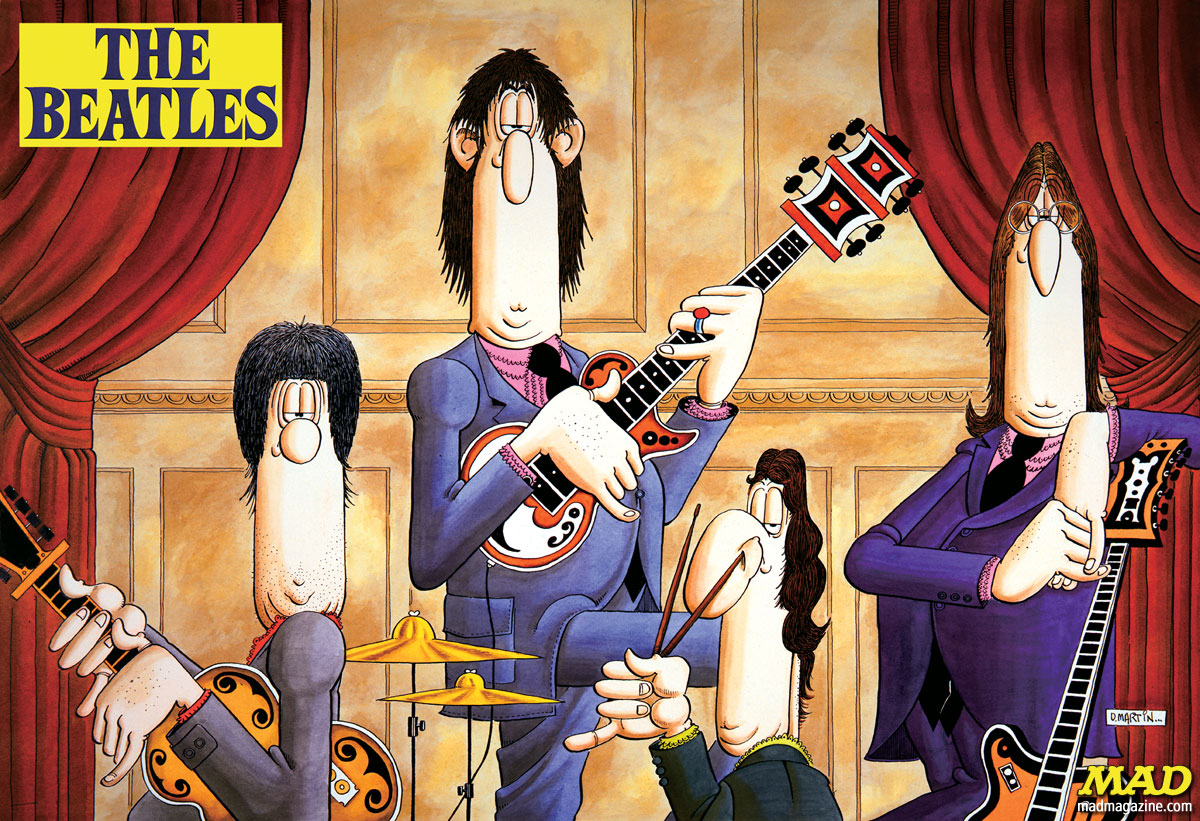
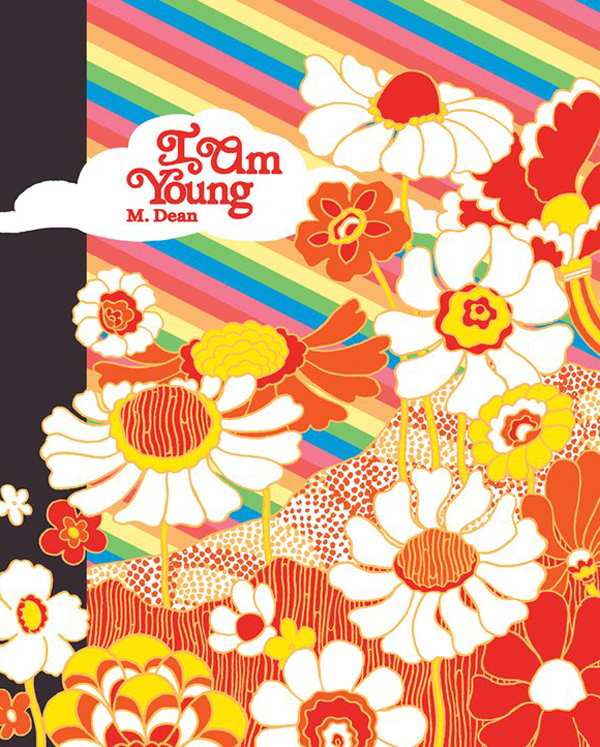
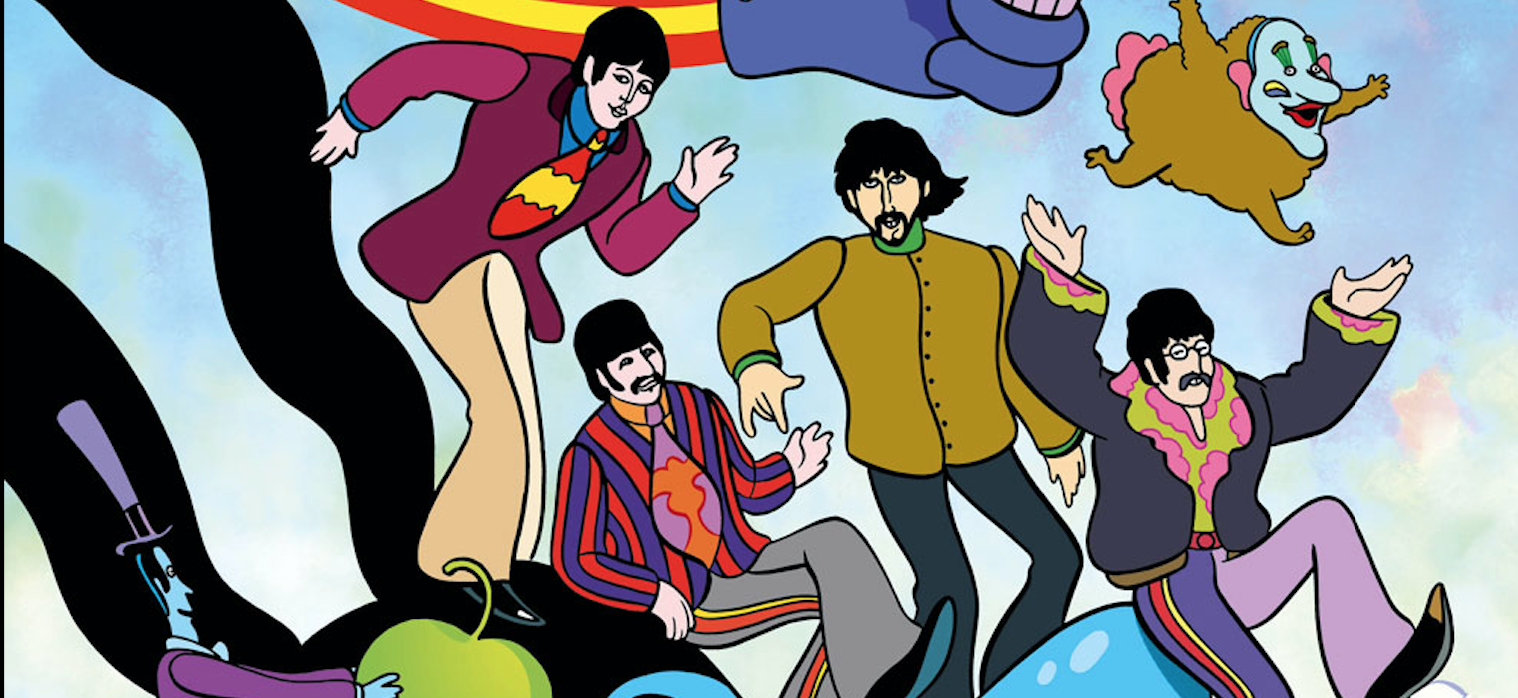
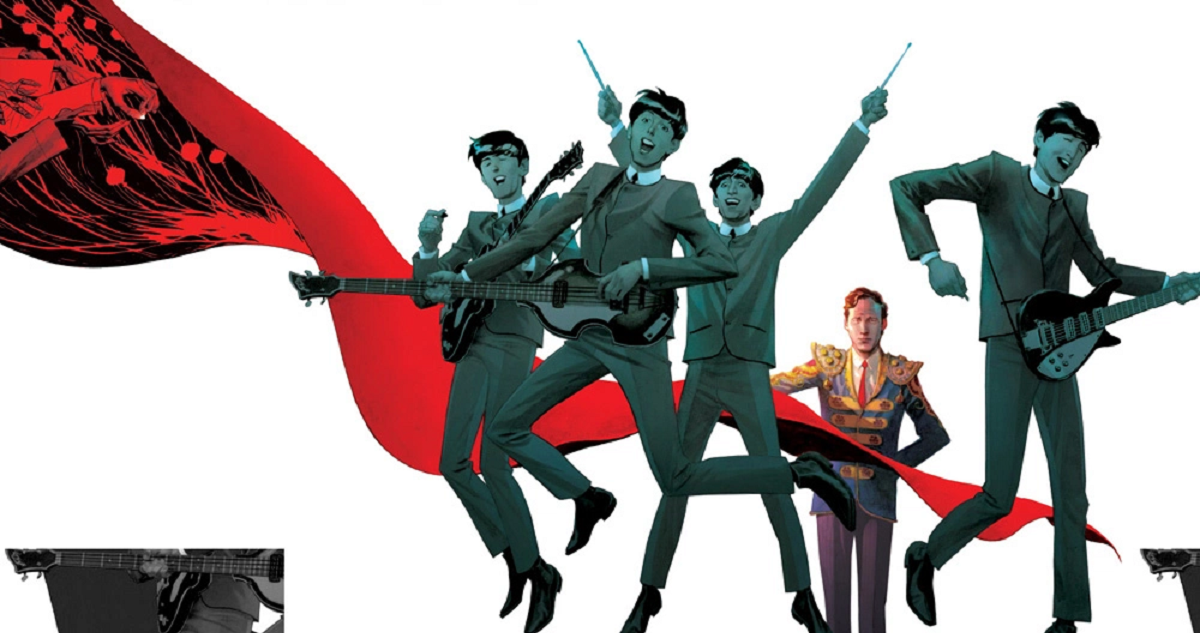


“Is there a parallel with comics?”
Why yes there is…
Comic Books And Then Some
Buzzy Free…..Joe Piscopo
Clarence Walker…..Eddie Murphy
Buzzy Free: Hi, everybody! This is Buzzy Free, and welcome to “Comic Books And Then Some” Our guest today is here because it’s the 50th anniversary of the Holy Consumption of Chicago’s invasion of America. His name is Clarence Walker, and he claims that he conceived the group’s image and wrote and drew most of the comics, and was, in fact, the fifth member of The Holy Consumption and head writer and artist before being kicked out of the group in 2003. Hello, Clarence.
Clarence Walker: Hello, man.
Buzzy Free: So. You “invented” The Holy Consumption of Chicago?
Clarence Walker: Yeah, man, I was ripped off by the whole group, and the whole group got a behind kicking coming to them when I see ’em! I been lookin’ for them boys since 2004, and that’s why they got that around-the-clock security in their house, ’cause they know that when Clarence Walker finds ’em, he gonna take a chunk out of their behinds!
Buzzy Free: Okay, Clarence. Can you prooove you were the fifth member of The Holy Consumption???
Clarence Walker: Yes, I can prove it, man. And I suggest you take that sarcasm out your voice alright? I’m serious!
Buzzy Free: I’m sorry, Clarence, it’s just… the whole thing seems absurd —
Clarence Walker: Yeah, well say it seems absurd, then, man! Don’t patronize me, alright? ‘Cause I’ll kick your behind right here on national television! I was the fifth member of The Holy Consumption! I have proof!
Buzzy Free: Alright, what is that proof, Clarence?
Clarence Walker: Well, here’s a photograph of us, back in 2002. Before they kicked me out of the group.
[ Clarence holds up doctored(????) photo of The Holy Consumption of Chicago in a studio session, with Clarence with a camera in the middle ]
Clarence Walker: That’s Paul… that’s John… that’s me in the middle, that’s me, Clarence… that’s Anders… and that’s Jeffrey.
Buzzy Free: Well, now, I never saw any fumetti — I see you’re holding a camera, I never saw any fumetti in any early Holy Consumption of Chicago comics…
Clarence Walker: Are you crazy, man? most of them early comics was mostly fumetti, man! But they stole it from me! What they did was — they took my story out, they took the pictures out — and it was gone, alright? I did most of the stories, too, alright?
Clarence Walker: Let me tell you something — when I see them boys, I’m gonna put my foot so deep into them, their breath’s gonna smell like shoe polish!
Buzzy Free: Well, can you give us an example of what you wrote, and what they changed?
Clarence Walker: Yes, I can! “Clumsy”, was originally titled “Clumsy, Man.” And “Dogs and Water”, was originally titled “Dogs and Water, Man!” And “Mother, Come Home”, was originally “Mother, Come Home And The Bitch Don’t Care, Man”!
Buzzy Free: Clarence… what about the clothing, and they way they wore their hair?
Clarence Walker: All that is my idea! I molded the boys — I was The Most Dominant One! See, that was the way we was described back then:
Paul Hornschmeier was The Wise Guy
Jeffrey Brown was The Cute One
Anders Nilsen was The Quiet One
and John Hankiewicz was The Shy One.
And Clarence Walker was The Most Dominant One!
I molded the boys! In the beginning, they used to everything that I do! In fact, here’s a picture of us back in 2001, when we was called The Clarences!
[ Clarence holds up non-doctored photo of him and The Holy Consumption of Chicago sporting Afros with “The Clarences” written on the photo ]
Clarence Walker: See, that’s me right there… and that’s Anders… there’s Jeffrey… that’s John… and that’s Paul. I taught them how to pick their Afros and everything out, man!
Clarence Walker: Jeffrey Brown still use Afro-Sheen because of me!
Buzzy Free: Well… this is astonishing… I wonder if you have any of your early jam sessions —
Clarence Walker: Yes, I do! Yes, I do! I brought some of the early comics, and I have it in a medley form, so you can listen to it. You can hear us and our original jam sessions. Listen to the original Holy Consumption of Chicago here. Listen up!
[ Clarence turns on a tape recorder ]
[ saxophone sounds are heard over “I Want To Hold Your Hand” ]
Holy Consumption of Chicago: “Yeah! Yeah! Yeah!”
Voice of Clarence: Ha! Come on, y’all!
Holy Consumption of Chicago: “Oh, yeah, I’ll!”
Voice of Clarence: Man!
Holy Consumption of Chicago: Tell you something!
Voice of Clarence: Man!
Holy Consumption of Chicago: I think you’ll understand!
[ medley moves on to “Love Me Do” ]
Holy Consumption of Chicago: “Love, love me do…”
Voice of Clarence: [ speaking ]
My darling, I will truly love me, if you love me do.
And I will always, always be true
If you’ll just give your love to me
And always remember to just…
Love me… do!
Holy Consumption of Chicago: “Oh, love me do..”
Voice of Clarence: You so sexy!
[ Buzzy interrupts Clarence’s tape ]
Buzzy Free: Clarence… Clarence, I gotta tell you — that really doesn’t prove anything. I mean, you could have dubbed that over, I’m sorry.
Clarence Walker: I didn’t dub that over, man! That’s original comics! If you want to hear something else, just to prove that they stole it from me and they know that they ripped me off, I can play this thing backwards, and you can hear them talking about it! You can hear Paul Hornschmeier, I’ll play it backwards, listen really close!
[ Clarence plays his tape in reverse ]
Voice of Paul Hornschmeier: Hey, Jeffrey! Let’s get rid of Clarence and steal all his good ideas!
Voice of Jeffrey Brown: Yeah!
Buzzy Free: Well! I’ll tell you, Clarence — you’ve convinced me, and I hope you get everything that you deserve.
Clarence Walker: Well, thanks a lot, man. You see, I don’t want much, I’m a very modest man, you know? All I want to do is get my rent straight, get my head together. All I need is about seven grand — $7,200 to get straight, that’s all I want. I ain’t greedy.
Buzzy Free: About seven grand..?
Clarence Walker: Seven grand, that’s all I need. But they got behind kickin’s comin’ to them!
Buzzy Free: Good luck to you! This is Buzzy Free!
Clarence Walker: I want a chunk out of each of your behinds!
[fade out]
I recently started a podcast called Compleatly Beatles where we go over each album track by track http://www.sneakydragon.com/podcast/help/ and I’d say the comparison between Lee/Kirby and Lennon/McCartney is that both did amazing work apart but together they changed the world. Right time, right place and magic happened that inspired generations and continues to do so. With anyone else in their fields that would be hyperbole, but not in those cases.
When debates about who did what between Lee and Kirby start comparing them to Lennon and McCartney, it’s an infallible sign that things are about to get fatuous. What does the Beatles’ career have to do with comics? Answer: nothing.
The Fab Four and Fantastic Four both built on the past and changed their industries and art forms forever.
Comments are closed.